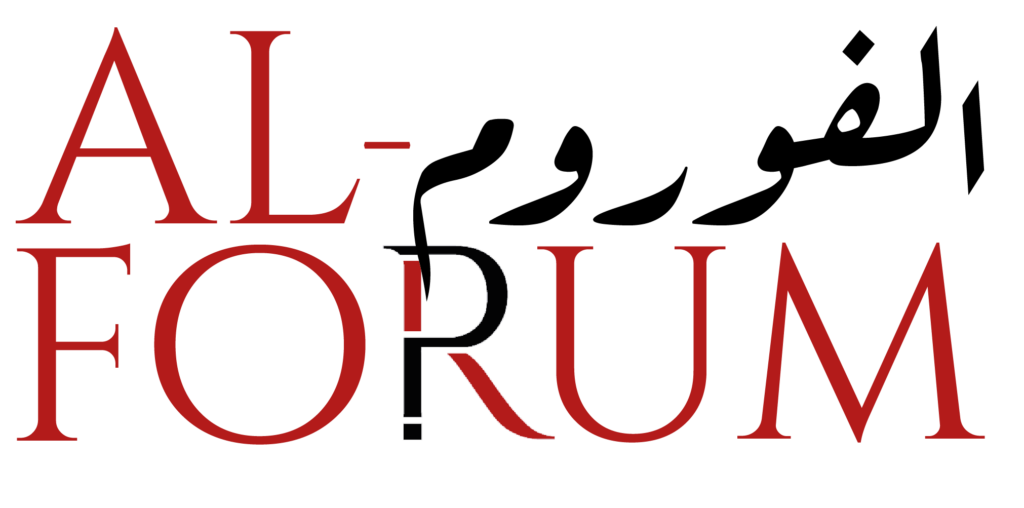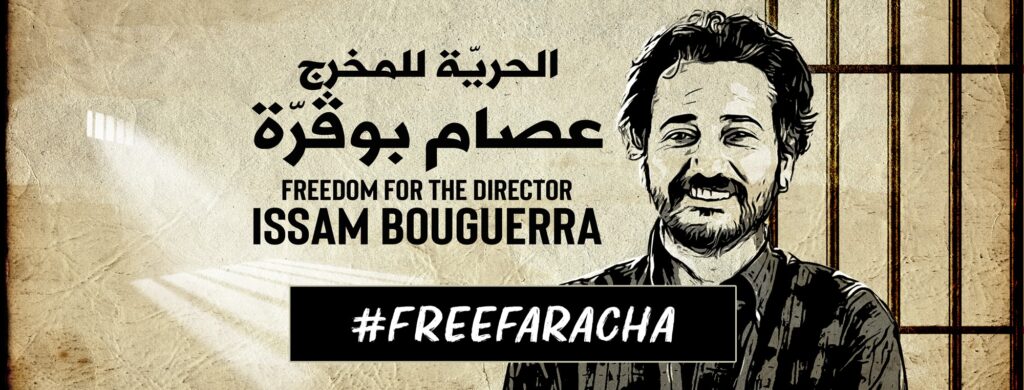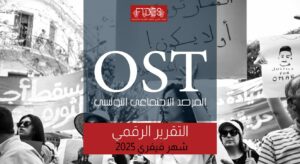Joint statement: 16 Tunisian and international civil society organizations call for the immediate release of Issam Bouguerra
Tunisian filmmaker Issam Bouguerra imprisoned since 24 August 2021 was sentenced on 24 November 2022 to 15 months in prison on charges of use and possession of cannabis, which should not be criminalized in the first place. Nevertheless, he was kept in custody despite having already spent more than that time in detention due to an appeal launched by the prosecutor.
The undersigned organizations and individuals urge the Tunisian authorities to immediately release him as his detention is arbitrary due to the nature of the charges and to his continued detention despite the time served in jail. Additionally, Bouguerra is in urgent need of medical assistance that cannot be provided in the prison where he is being held. Finally, we call on the Tunisian authorities to undertake a comprehensive review of all drug laws and policies, including Law N.92-52, to decriminalize the use and possession of drugs for personal use and ensure an expansion of health and other social services to address the risks related to drug use.
On the day of his trial on 24 November 2022, the court of first instance in Ariana, Tunis, sentenced Issam Bouguerra to 15 months in prison. Given the length of time that Issam had already spent in pre-trial detention, he should have been released following the verdict as he had already served this time in jail. However, that same day the prosecutor of the court of first instance of Tunis appealed his sentence to apparently seek a harsher penalty. The hearing before Tunis appeal’s court is scheduled on 13 February 2023.
During his detention, Issam Bouguerra was denied access to urgent and needed adequate healthcare. His father visited him on multiple occasions in Mornaguia prison where he is detained. He told Amnesty International that his son has been suffering from bleeding for several weeks. Due to a history of colon cancer in the family, which lead to Issam Bouguerra’s mother’s death, the family doctor has recommended medical scans every six months. Yet, since his arrest, prison authorities have failed to provide him with the required medical check-ups because the prison medical facility is not equipped to provide the examinations he requires, such as a scan or coloscopy. Issam Bouguerra asked to see a qualified doctor outside the prison repeatedly since April 2022, but prison authorities ignored his requests.
Issam Bouguerra’s ordeal epitomises the suffering of thousands of people deprived of their liberty in Tunisia solely for their use of drugs. According to a recent report by Lawyers Without Borders, more than 2500 individuals were detained for drug related offences in 2019, 60% of them solely for consumption. Prison overcrowding is a long standing issue in Tunisia, with prisons already exceeding their maximum capacity with around 22,000 inmates for 18,000 places, many of them for drug related offences. Tunisian and international civil society organizations have documented the wide array of human rights violations that are facilitated by punitive drug laws, including physical and verbal assault from police officers. While Law n.92-52 was amended in 2017 mainly to reduce prison overcrowding, human rights violations stemming from this law continue unabated.
The prohibition and criminalization of the use and possession of drugs for personal use has failed to decrease the use and availability of drugs, posing instead a direct threat to a person’s health and leading to widespread human rights violations. Despite years of criminalisation, rates of drug use have remained largely stable globally since governments began implementing the prohibition of drugs. As noted by the Special Rapporteur on the right to health, “people invariably continue using drugs irrespective of criminal laws, even though deterrence of drug use is considered the primary justification for imposition of penal sanctions”. Consequently, multiple human rights mechanisms and UN agencies have recommended countries to decriminalize the use and possession of drugs for personal use as a means of protecting public health and human rights.
Issam Bougerra is a 39-year-old Tunisian filmmaker from Kairouan. After studying graphic design in Tunisia, he went to the United States to pursue his passion and studied cinema in Los Angeles. He directed several TV series for Tunisian and Algerian television channels. He is most known for his short film “Faracha” (Butterfly) about the story of a young boy from Kairouan, an impoverished and conservative Tunisian city, who decides to follow his passion despite everyone’s disapproval. “Faracha” was critically acclaimed and won the Couple d’Or for best short fiction film at the second edition of the Mon premier Film Festival in Paris in 2022 while Issam Bouguerra was in jail.
Signatory organizations:
- Amnesty International
- Common Memory for Freedom
- Citizen Movement of Tunisians in France
- Damj
- International Federation for Human Rights (FIDH)
- Intersection for Rights and Freedoms
- Legal Agenda
- Lawyers Without Borders (ASF)
- Mawjoudin
- Psychologists of the World- Tunisia
- Tunisian Association for Cultural Action (ACAT)
- Tunisian Association for the Defense of Children’s Rights (ATDDE)
- Tunisian Association for the Defense of Individual Rights (ADLI)
- Tunisian Association of Young Doctors
- Tunisian Forum for Economic and Social Rights
- World Organization Against Torture (OMCT)
Signatory individuals:
- Abdejlil Bouguerra, coordinator of the Free Faracha campaign
- Allagui Abdelkrim, human rights activist and university professor
- Asma Sabri
- Chokri Latif, president of the Organization Against Torture in Tunisia
- Fatma Zahra
- Hedia Belhadj, president of the Tawhida Ben Cheikh group and doctor
- Monia Ben Jemiaa, university professor
- Mokhtar Trifi, honorary president of the Tunisian Ligue for Human Rights
- Nabila Hamza, city councillor and sociologist
- Oussema Helal, lawyer
- Sana Ben Achour, president of Beity association
- Selma Hajri, human rights activist, doctor






